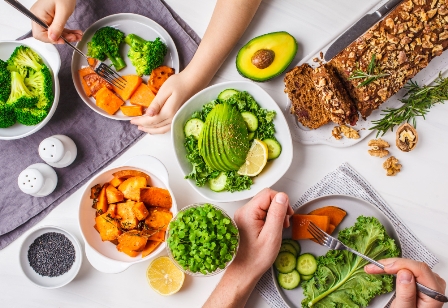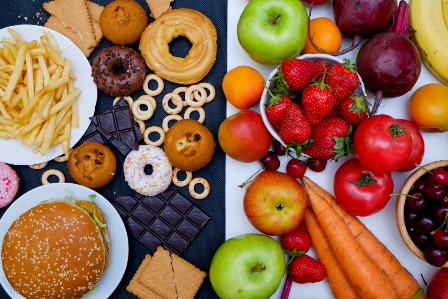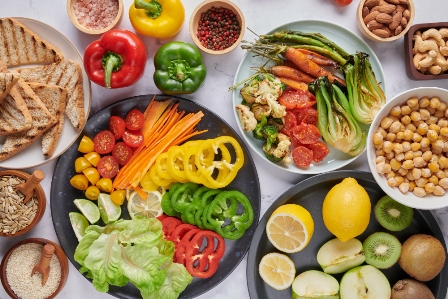If you’ve been prescribed Xifaxan, a commonly used antibiotic for gastrointestinal conditions, it’s essential to know that certain foods can interact with the medication, affecting its efficacy or causing adverse reactions. This article serves as a comprehensive guide on the foods to avoid while taking Xifaxan. Before we delve into the specifics, let’s briefly understand what Xifaxan is and its purpose.

1. What is Xifaxan?
Xifaxan, with the generic name Rifaximin, is an antibiotic used to treat various gastrointestinal disorders such as irritable bowel syndrome with diarrhea (IBS-D) and traveler’s diarrhea caused by E. coli bacteria. It works by inhibiting the growth of harmful bacteria in the intestines, providing relief from symptoms like diarrhea, abdominal pain, and bloating.
2. How Does Xifaxan Work?
Xifaxan is a non-absorbable antibiotic, meaning it remains within the gastrointestinal tract without entering the bloodstream significantly. As it travels through the digestive system, it targets and eliminates harmful bacteria, reducing inflammation and symptoms associated with gastrointestinal conditions.
3. The Importance of Diet While Taking Xifaxan
While Xifaxan can be effective in treating gastrointestinal issues, certain dietary choices can impact its effectiveness. It is crucial to be mindful of what you eat during the course of Xifaxan treatment to ensure optimal results and avoid any potential complications.
4. Foods to Avoid

High-Fiber Foods
High-fiber foods, while generally considered healthy, can interfere with Xifaxan’s efficacy. These include whole grains, bran, beans, lentils, and fibrous fruits and vegetables. The presence of fiber can reduce the contact time of Xifaxan with the intestinal walls, limiting its effectiveness in targeting harmful bacteria.
Fatty Foods
Fatty foods can slow down the digestion process, potentially reducing the absorption of Xifaxan. Avoid foods high in saturated fats, such as fried foods, fatty meats, and full-fat dairy products, during your treatment period.
Dairy Products
Xifaxan is often prescribed for conditions like IBS-D, which may include lactose intolerance as a symptom. Dairy products can exacerbate symptoms like diarrhea and bloating, so it’s best to avoid them while on Xifaxan.
Caffeinated and Alcoholic Beverages
Caffeine and alcohol can irritate the gastrointestinal tract, potentially counteracting the effects of Xifaxan. Moreover, they can contribute to dehydration, which is not ideal during treatment.
Spicy Foods
Spicy foods may trigger gastrointestinal distress and worsen symptoms while on Xifaxan. Avoid hot peppers, chili, and other spicy dishes.
Artificial Sweeteners
Certain artificial sweeteners, like sorbitol and mannitol, commonly found in sugar-free products, can ferment in the gut, leading to gas and bloating. These should be avoided during Xifaxan treatment.
High-Sugar Foods
Foods high in sugar can promote the growth of harmful bacteria in the gut, negating the effects of Xifaxan. Minimize your consumption of sugary snacks, candies, and sugary beverages.
Processed Foods
Processed foods often contain additives and preservatives that can disrupt gut health. Opt for whole, natural foods instead.
Raw Seafood
Raw seafood, such as sushi and oysters, poses a risk of bacterial contamination. While on Xifaxan, it’s best to avoid raw seafood to prevent any potential foodborne illnesses.
Gassy Vegetables
Certain vegetables, like broccoli, cauliflower, and cabbage, can cause gas and bloating. Steer clear of these during your treatment.
5. Tips for a Xifaxan-Friendly Diet

Stick to Low-FODMAP Foods
FODMAPs are fermentable carbohydrates that can exacerbate symptoms in individuals with sensitive digestive systems. Emphasize low-FODMAP foods like rice, bananas, carrots, and spinach during your treatment.
Stay Hydrated
Drink plenty of water to prevent dehydration and aid in the elimination of harmful bacteria from your system.
Opt for Lean Proteins
Choose lean proteins like skinless chicken, turkey, and fish to avoid the digestive strain caused by fatty meats.
Cook Vegetables
Cooking vegetables can make them easier to digest and reduce their gas-producing effects.
Keep a Food Diary
Maintain a food diary to track your diet and any symptoms experienced during the Xifaxan treatment. This can help identify potential triggers and assess the effectiveness of the medication.
FAQs
Answering Your Foods to Avoid While Taking Xifaxan Queries
The best time to take Xifaxan is usually with or without food, as directed by your healthcare provider. However, it is essential to follow their specific instructions as they may tailor the dosage based on your individual needs and condition.
Xifaxan may not be suitable for everyone. Individuals with a known allergy to rifaximin or any of its components should avoid taking the medication. Additionally, those with a history of severe liver impairment or those taking certain medications that interact adversely with Xifaxan should not use it.
Abruptly stopping Xifaxan without completing the prescribed course may lead to incomplete eradication of harmful bacteria in the gut. This could result in a recurrence of gastrointestinal symptoms, and the condition may not be fully resolved.
Xifaxan may cause Clostridioides difficile-associated diarrhea (CDAD), a severe intestinal infection. If you experience persistent diarrhea or abdominal pain after using Xifaxan, it’s crucial to inform your doctor immediately. Additionally, Xifaxan may interact with certain drugs, so it’s essential to provide a comprehensive list of all medications you are taking to your healthcare provider.
A severe allergic reaction to rifaximin is rare but possible. If you experience symptoms such as rash, itching, swelling, severe dizziness, or difficulty breathing, seek immediate medical attention.
The duration of Xifaxan treatment varies depending on the specific gastrointestinal condition being treated and the severity of symptoms. A typical course of Xifaxan for conditions like IBS-D may last for about two weeks, but your doctor will determine the appropriate length of treatment.
Conclusion
Xifaxan can be a valuable tool in managing gastrointestinal conditions, but it’s essential to be mindful of your diet during the treatment period. Avoiding certain foods and making strategic dietary choices can enhance the effectiveness of Xifaxan and alleviate symptoms. By following the guidelines provided in this article, you can make the most out of your treatment and achieve better gastrointestinal health.

